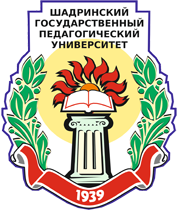Модель формирования жизненных компетенций у умственно отсталых школьников в рамках организации внеурочной деятельности: из опыта работы ГБОУ школы №21 г. Краснодара
Model of formation of life competencies in mentally retarded schoolchildren within the extracurricular activities: from the experience of Krasnodar's school №21
Аннотация
В статье рассматривается проблема формирования жизненных компетенций у умственно отсталых школьников во внеурочной деятельности. В статье изложен опыт работы ГБОУ школы №21 г. Краснодара, а именно реализация оптимизационной модели внеурочной деятельности по формированию жизненных компетенций у умственно отсталых школьников. Описаны механизмы реализации комплексной программы внеурочной деятельности на базе специальной (коррекционной) школы с учетом требований государственного стандарта образования лиц с интеллектуальными нарушениями. Определены основные задачи организации внеурочной деятельности по формированию жизненных компетенций, направления, этапы и подходы к работе. Реализация данной модели позволяет формировать у умственно отсталых школьников на начальном этапе обучения понимание и умение частично самостоятельно применять жизненные компетенции, предусмотренные образовательным стандартом. В дальнейшем разработанная нами модель организации внеурочной деятельности на этапе обучения и воспитания школьников с 5 по 9 класс требует расширения опыта их социального взаимодействия. Данная тенденция обусловлена необходимостью практического закрепления формируемых жизненных компетенций в самостоятельной практической деятельности умственно отсталых учащихся.
Abstract: The article deals with the problem of the formation of life competencies in mentally retarded schoolchildren within the extracurricular activities. The article describes the experience of School No. 21 in Krasnodar, namely, the implementation of an optimization model of extracurricular activities for the formation of life competencies in mentally retarded schoolchildren. The mechanisms for the implementation of a comprehensive program of extracurricular activities on the basis of a special (correctional) school, taking into account the requirements of the state standard of education for persons with intellectual disabilities, are described. The main tasks of organizing extracurricular activities for the formation of life competencies, directions, stages and approaches to work are determined. The implementation of this model allows mentally retarded schoolchildren to develop an understanding and ability to partially independently apply life competencies provided for by the educational standard at the initial stage of learning. In the future, the model we have developed for organizing extracurricular activities at the stage of teaching and upbringing of schoolchildren from 5 to 9 grades requires expanding the experience of their social interaction. This trend is due to the need for the practical consolidation of the formed life competencies in the independent practical activity of mentally retarded students.






